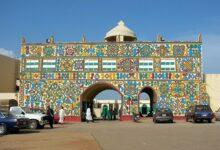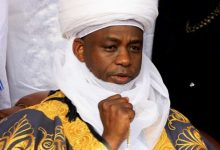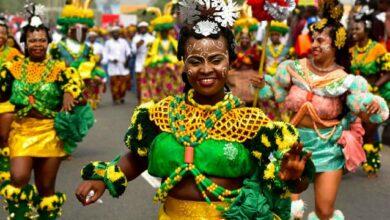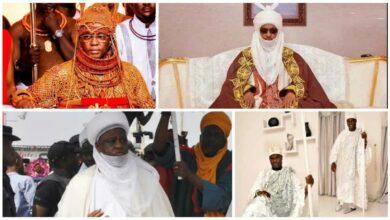
Traditional Marriage Rites in Yoruba Land, Bridal List and Everything you need to know
See Everything you need to know about traditional marriage rites in Yoruba land. This information very useful if you are planning to marry a Yoruba girl.
Marriage is a big, colorful and intriguing part of Yoruba culture. Yorubas are associated with their love for a show that of their rich cultural heritage even in modern times.
👉 Relocate to Canada Today!
Live, Study and Work in Canada. No Payment is Required! Hurry Now click here to Apply >> Immigrate to Canada
And despite the developments in the modern world and the technological advancements that we have, very few as changed over the large span of years in the way that marriage was celebrated in indigenous Yoruba land and marriage as it is celebrated now.
The marriage process in indigenous Yoruba land starts right after a young man has made a choice of a maiden he desires. His parents’ appoints somebody who is called the ALARINA that is a middleman or a chaperon, who starts the marriage process formally.
The ALARINA, starts an inquisition into the family of the maiden in question, by employing skills such as the use of word of mouth and investigations to find out whether the maiden’s family background was compatible with that of the young man, if there is a history of genetic diseases and disorders in the maiden’s family and to determine the kind of reputation that the maiden has.
If the ALARINA disapproves of the girl, further plans are cancelled and the couple can no longer be wed, they can only try eloping at the risk of being cut off from their family forever.
However if the ALARINA approves the union, the families move to the next stage, which is to arrange an informal meeting, usually only close kin are invited, where the two families meet each as prospective in laws for the first time. This meeting called MOMI N MO, is usually either at the bride to be’s family home.
It is at this meeting that formal courting begins and they fix a date for the meeting. At this meeting, the groom to be’s family is also presented with a list of items which form part of the dowry to be paid at the main wedding ceremony, this list is called ERU IYAWO.
There is a sample of items in such wedding lists. In this day and age very few things have changed about the nature of these ceremonies that precede the traditional wedding.
👉 Relocate to Canada Today!
Live, Study and Work in Canada. No Payment is Required! Hurry Now click here to Apply >> Immigrate to CanadaThe use of ALARINAs is practically nonexistent and the MO MI N MO ceremony is now popularly referred to as the introduction ceremony, this is no longer a close kin affair, as it is now largely a reflection of some of the activities that will take place on the day of the traditional wedding.
YORUBA TRADITIONAL MARRIAGE BRIDAL LIST (ERU IYAWO)
1. 42 big tubers of yam’
2. Palm oil and vegetable oil (25 liters)
3. Honey (1 big bottle)
4. Kolanut (called OBI, 25 pieces)
5. Bitter Kola (called OROGBO)
6. Alligator pepper (called ATARE , 42 pieces)
7. Sugar cane
8. Fruits (different types)’
9. Cow or goa
10. Salt
11. Alcoholic drinks
12. The bride price (called OWO ORI)
13. Dried fish (called EJA OSAN, 42 pieces)
14. 1 dish of peppered corn meal (adun)
In modern times the following items are usually added tp the traditional wedding list. They include:
15. 4 crates of canned or bottled soft drinks
16. 4 crates of malt non alcoholic drink
17. 2 bottles of non alcoholic wine
18. 2 cartons of fruit juice
19. 1 bag of rice
20. 1 umbrella
21. 1 big suitcase that contains shoes and matching bags, different types of fabric ranging from Ankara to lace, including gele and aso oke for the bride.
22. 1 complete jewelry set with wrist watch, earrings and neck chains
23. Engagement ring
24. Bible or Quran
BRIDE PRICE – THE DOWRY FOR YORUBA MARRIAGE
The bride price which is not fixed and it is usually returned to the couple on the day of the wedding in the full view of everyone present
Owo Ijoko Agba: fees for the elder’s consent
Owo Baba Gbo : fees for the father’s consent
Owo Iya Gbo : fees for the mother’s consent
Owo Ikanlekun: fees for door knocking
Owo Omo Ile: fees for the children of the household
Owo Isiju Iyawo: fees for unveiling the bride
Owo oko: fees for the bride’s transportation
Owo Iyawo Ile: fees for the married women of the household
Owo Leta Kika: fees for reading the letter
Owo Telephone: a recent modern addition meaning fees for telephone calls made to bring in the bride
Owo Isigba: fees for unveiling the engagement gifts
Owo alaga Ijoko: fees for the moderator of the bride’s family.
Compare With: Traditional Marriage Rites In Edo State, Nigeria
Yoruba traditional engagement Ceremony
On the day of the traditional engagement, the program which is usually moderated by two people usually female, that is the Alaga Ijoko for the bride’s family and the Alaga Iduro or the groom’s family starts off with the entrance of the groom and his entourage, he is barred from entering the venue until he pays money to the Alaga Ijoko who then ushers him and his entourage into the venue with singing and dancing.
They proceed to greet the bride’s family who are already seated, with the males prostrating and the females kneeling down. After the greetings, a proposal letter from the groom’s family is now read out by the youngest female in the bride’s family, stating their intention to marry the bride.
The groom is made to prostrate with the friends first before his own family and then before the bride’s family. He is asked his intentions towards the bride and made to beg for her hand in marriage.
The bride is the last person to arrive at the venue; she is veiled, and then escorted into the venue by her friends with lots of singing and dancing. She kneels in front of her parents for prayers and then proceeds to do the same or her groom’s parents. She is then unveiled by the groom’s parents; she joins her future husband and dresses him up with the FILA, a traditional Yoruba cap to signify her acceptance of the union.
At the instruction of the Alaga Ijoko, the bride goes to the place where the engagement gifts have been arranged and she is asked to pick the most valuable thing there. She picks up the Bible or Quran which has a ring attached to it and moves back to her groom, he puts the ring on the fourth finger of her left hand and they move on to cut the traditional marriage cake if there is any.
It is at this point that the dowry is handed over to the various groups entitled to it, the bride’s father makes a show of returning the bride price to the groom after taking a small sum from the whole, to show the world that he loves his daughter too much to sell her while entreating his new son in law to take proper care of her.
This signifies the end of the traditional marriage rites. But the event continues with a lot of eating and celebratory dancing.








